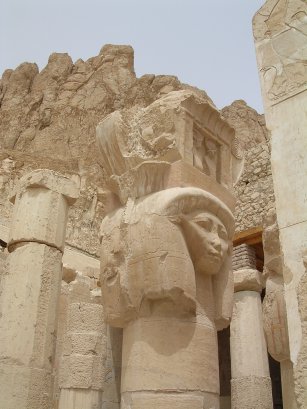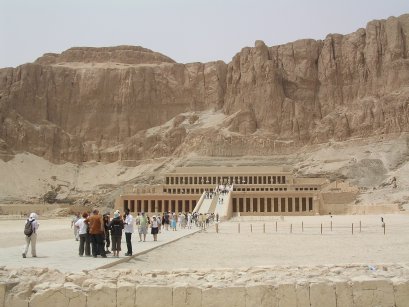Hatshepsut, Speak to me, by Ruth Whitman, was an unexpected gift brought to me from America. I had not heard of the book before, but am delighted to have read it now. Unlike most of what I have read recently, it is a book of modern poetry rather than prose. However, it is not all modern, as Ruth blended translations and rewrites of New Kingdom Egyptian material along with new compositions in her own voice.

The result is a vivid and credible dialogue between the Ruth of today and the Hatshepsut of about 3500 years ago. The two women are seen to share a great deal in their experience of life, sexuality, loss, and managing the difficulties of being a woman in a role traditionally seen as male. Indeed, part of the poignancy of the conversation is simply that the two women could never actually meet in real life, and can only converse through the written word or glyph.
Hatshepsut’s life fades away in the textual record left to us from Egypt. This has given rise to a great deal of speculation about the transfer of power from her to Thutmose III. Ruth presents her as a perceptive nurturer of culture, not the conqueror of other lands that so many New Kingdom pharaohs sought to be. As such, despite the internal wealth of goods and knowledge she cultivated, in the end she was rejected by a martial faction within elite society. Her voice fades away into the still-surviving splendour of her memorial at Deir el-Bahri, along with the resting places and histories of those she loved. This book was also to be Ruth Whitman’s final one, so that both women leave us with the closing words of the book.
I personally thought the book was a great piece of imaginative exploration, and have no hesitation in giving it five stars. Having said that, I am aware that not everyone will enjoy it. It is poetry rather than prose, and although it spans the lives of both women it does not intend to tell a story which goes anywhere. Part of the connection between the two women is that their simple struggle to gain acceptance absorbed so much energy that their full potential could not be realised.
For those who like the human side of New Kingdom Egypt – inquisitive, sensitive and exploratory as opposed to assertive and combative – this could be a book for you.
Here is a short extract from one of my favourite pieces, but the full impact of this book is not in the parts but in the whole.
For you, death is a continuation of life:
you will eat the same bread, beer, wine, geese,
celebrate banquets and festivals,
your shawabtis will fish in the river, plow,
gather grapes in the vineyards for you.For me, death is the end.
I’m racing to leave behind
a few words arranged in a pattern
that will touch the living.
Sentiments and ideas which also find expression in Scenes from a Life, now going through the final stages of release as soft-cover.

